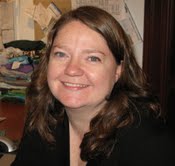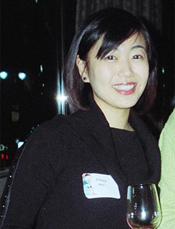new posts in all blogs
Viewing: Blog Posts Tagged with: Publisher Steve Meltzer, Most Recent at Top [Help]
Results 1 - 4 of 4
How to use this Page
You are viewing the most recent posts tagged with the words: Publisher Steve Meltzer in the JacketFlap blog reader. What is a tag? Think of a tag as a keyword or category label. Tags can both help you find posts on JacketFlap.com as well as provide an easy way for you to "remember" and classify posts for later recall. Try adding a tag yourself by clicking "Add a tag" below a post's header. Scroll down through the list of Recent Posts in the left column and click on a post title that sounds interesting. You can view all posts from a specific blog by clicking the Blog name in the right column, or you can click a 'More Posts from this Blog' link in any individual post.

By: Kathy Temean,
on 4/5/2014
Blog:
Writing and Illustrating
(
Login to Add to MyJacketFlap)
JacketFlap tags:
Agent,
Advice,
Editors,
Conferences and Workshops,
demystify,
David L Harrison,
Publisher Steve Meltzer,
Agent Sean McCarthy,
Ask Kathy,
Hightlights Foundation,
Add a tag
 David Harrison is conducting a Highlights Foundation workshop:
David Harrison is conducting a Highlights Foundation workshop:
Poetry for the Delight of It
September 29 – October 2.
David’s first book for children, The Boy with a Drum, was released in 1969 and eventually sold more than two million copies. In 1972, David won national recognition when he received the Christopher Award for The Book of Giant Stories. Since then David has published seventy-seven original titles that have sold more than fifteen million copies and earned numerous honors.
From budding poet to published veteran, if you like to think, talk, write, and share poetry, this one’s for you. Don’t wait too long to decide, this workshop sold out last year.
Here is the agenda:
Session 1: The Study of Poetry
Session 2: Verse
Session 3: Are You Funny?
Session 4: Skype Guest Kenn Nesbitt
Session 5: Revising and Rewriting
Session 6: Skype Guest Jane Yolen
Session 7: Performing Your Work
Session 8: Tips on Marketing
Session 9: Self-Publishing
Session 10: Poetry Editor Rebecca Davis
Session 11: Becoming an Expert
Session 12: Open Forum
Session 13: The Big Performance
Session 14: Setting Doable Goals
Wrap Up, Pictures, Goodbyes
Individual activities will include time to:
- Practice writing what you’re learning
- Be still with your thoughts
- Start at least three new poems
- Meet one-on-one with your workshop leader
- Have your work critiqued by your workshop leader
- Fun, impromptu gatherings by the fire to share poems
- Chance to learn from others
Here is the link: http://www.highlightsfoundation.org/workshops/poetry-for-the-delight-of-it-2014
Below are a few of the questions and answers I received at last weekend Writer’s Retreat with Agent Sean McCarthy and Publisher Steve Meltzer.
1. When formatting a manuscript: Do you know of any rule that says you must NOT indent the first paragraph of a new chapter? What do you think?
Both Sean and Steve, thought I was crazy when I asked this and couldn’t understand why this question was being asked. I explained that when you read a book, the first paragraph of each chapter is not indented. Apparently this is something that has carried over from the old days in publishing. It is nothing that a writer needs to do when formatting their manuscript.
2. What do you think of prologues? Use them or lose them?
Both Sean and Steve agreed that it is okay to use a prologue if it is important to telling the story. The word, “Important” is the key. Could the same story be told without the prologue? Is it something that the reader needs to know and will it tie into the end of the novel? They said editors worry about them, because many readers skip the prologue.
3. Are there any conventions for labeling manuscripts/books that mix genres? (For example, a series that is historical/science fiction/fantasy.)
The word for mixing these different genres is called, “Speculative Fiction.”
4. Because agents now often don’t respond if they aren’t interested in a query, that certainly makes it acceptable, almost imperative, to send simultaneous queries (although with each obviously tailored to a particular agent/agency). Is ten to a dozen too many to send out at once?
There was total agreement from everyone that you should not submit or query to only one agent. Ten seemed to be the standard amount to send out at one time.
5. Underlining makes it clearer to copyeditors and typesetters what needs to be italicized, but do agents have a preference whether the manuscript uses the italic or the underline function of the computer to indicate what will ultimately be italicized?
This was another one that didn’t seem to matter to Sean or Steve. Just italicize and don’t underline, since that is more standard. They weren’t worried about that detail, since they are paying the copyeditors to catch those type of things.
More Answers during the week, so check back.
Talk tomorrow,
Kathy
Filed under:
Advice,
Agent,
Conferences and Workshops,
demystify,
Editors Tagged:
Agent Sean McCarthy,
Ask Kathy,
David L Harrison,
Hightlights Foundation,
Publisher Steve Meltzer 


By: Kathy Temean,
on 3/22/2014
Blog:
Writing and Illustrating
(
Login to Add to MyJacketFlap)
JacketFlap tags:
Agent,
list,
Editors,
authors and illustrators,
opportunity,
Publisher Steve Meltzer,
Agent Sean McCarthy,
Ask Kathy,
Questions for Answers,
Add a tag

Children’s book illustrator and writer Nata Romeo sent in this stylize iguana for today’s post. She says, “Art is my passion.” I recently completed illustrations for a book titled ‘Wildlife Animals A to Z’, which she intends to self publish. Her preferred medium is a combination of watercolor and pen and ink. www.artistadonna.blogspot.com/
www.ArtistaDonna.ebsqart.com www.facebook.com/artistadonna.nata
This coming weekend I will be meeting with Agent Sean McCarthy and Publishing Executive Director and Managing Editor, Steve Meltzer. Some of you have sent in questions for me to ask so I can relay the answers to you. Please email me if you would like to add to the list.
Here are the questions sent to me:
1. What do you think of prologues? Use them or lose them?
2. When formatting a manuscript: Do you know of any rule that says you must NOT indent the first paragraph of a new chapter? What do you think?
3. What’s the best way to label a manuscript/book that falls on the borderline between middle grades and young adult? (Think ages 10 to 14. For example, I’m talking about a horsey book, and that is the age at which the most girls are the most horse-crazy, and the best time to market such a book to them.) Would agents/editors want to see it called upper middle grades? Tween?
4. What is the preferred word length for a book aimed at the upper middle grades/tween reader?
5. Are there any conventions for labeling manuscripts/books that mix genres? (For example, a series that is historical/science fiction/fantasy.)
6. Because agents now often don’t respond if they aren’t interested in a query, that certainly makes it acceptable, almost imperative, to send simultaneous queries (although with each obviously tailored to a particular agent/agency). Is ten to a dozen too many to send out at once?
7. Underlining makes it clearer to copyeditors and typesetters what needs to be italicized, but do agents have a preference whether the manuscript uses the italic or the underline function of the computer to indicate what will ultimately be italicized?
8. I read on your blog to only use one space between each sentence in your manuscript. I had someone tell me they have asked editors and were told it was okay. Would you double check with Sean McCarthy and Steve Meltzer on this?
9. I never heard of using capital letters the first time a character is mentioned in a synopsis. Would you ask about that at your retreat?
10. I have been told not to use any “ing” words in my manuscript. Is there a rule about this that I have missed?
11. What amount of books do you need to sell to have a publisher think your book was successful?
12. How hard is it to get your rights back on a book you that has gone out of print? Do you have any words of wisdom or steps an author could take to get the rights back?
13. What do you think about using the real name of a media or entertainer in your book? Is that okay or should you make up a similar name?
14. I am an illustrator and writer. Is it okay to send in a picture book dummy?
15. What is speculative fiction?
16. If you want to write a book from two character’s POV, using alternating chapters, is it okay to scatter in a few chapter’s from a third character’s point-of-view?
17. If you are writing a book using two character’s POV with alternating chapters, could the main character be in first person and the second character be in third person?
18. Do you have any thoughts on when to give up on a manuscript your have completed and has gotten rejected?
Talk tomorrow,
Kathy
Filed under:
Agent,
authors and illustrators,
Editors,
list,
opportunity Tagged:
Agent Sean McCarthy,
Ask Kathy,
Publisher Steve Meltzer,
Questions for Answers 


By: Kathy Temean,
on 6/20/2012
Blog:
Writing and Illustrating
(
Login to Add to MyJacketFlap)
JacketFlap tags:
Agent,
Author,
Tips,
Advice,
Conferences and Workshops,
Pitch Session,
Holly McGhee,
Publisher Steve Meltzer,
Ann Bellov,
Wafa Musitief,
Add a tag
Ann Bellov submitted the illistration below, titled “Summer Cold.” https://sites.google.com/site/annebelovfineart/

I asked Wafa Musitief to take notes during the Pitch Session with Agent Holly McGhee at Pippin Properties and Associate Publisher Steve Meltzer of Dial, Dutton, and Celebra. There are snippets of the session, which Kate DiCamillo sat in on and participated at the bottom of yesterday’s blog post. Here are the notes that Wafa took:
- It helps to do your research on comparative titles in your genre and mention that in your pitch if you can, because an agent will sell your story to an editor and that editor must sell it to the sales and marketing division, so you really must give enough information for a defined ‘hook’ in your pitch but not too much information.
- The pitch should include details such where, when, who, what, how, etc. to draw in the reader, and give a good sense of the character personality and the sense of environment of your story. All basic answers should be in the pitch.
- Holly McGhee emphasized that is all in the execution. The more personal and detailed your story is, the more universal the story becomes
And she advised when sending query letter, she recommended adding some personalization and then putting your manuscript or a few chapters at the bottom. Too much information in the query is not needed, except to show you have done your research when you wisely query the agent you have selected. The whole goal is to make the perfect match.
- When formulating your pitch, think what does the main character have to pull the reader in? Think about what’s magical about your story. The character should have a transformation that we find ourselves caring about.
- Keep in mind when pitching a story that you describe as Historical Fiction, it could leave questions for the agent regarding where your potential book would fit on the shelves of a bookstore. This could raise more flags and questions for the agent you are pitching.
-When pitching a middle grade or YA story, keep in the mind the stakes should be raised high for your character. It’s not always right to play it safe.
- in summary, a great execution is what it takes for a successful pitch while dropping a comparative title or two .
Thanks, Wafa. I know people feel like they miss out, when so many workshops are happening at once. I am sure this will help a lot of people who wanted to attend the workshop and couldn’t.
Talk tomorrow,
Kathy
Filed under:
Advice,
Agent,
Author,
Conferences and Workshops,
Tips Tagged:
Ann Bellov,
Holly McGhee,
Pitch Session,
Publisher Steve Meltzer,
Wafa Musitief  1 Comments on Notes From Editor/Agent Pitch Session, last added: 6/21/2012
1 Comments on Notes From Editor/Agent Pitch Session, last added: 6/21/2012
 Marcy Posner – Agent at Filio Literary Management. After fifteen years on the editorial side of the business, Marcy made the jump to agenting – spending twelve years as at the William Morris Agency as an agent and as Vice President and Director of Foreign Rights; five years as president of my own agency; five years at Sterling Lord Literistic as an agent and Director of Foreign Rights; and I’m now here – and very happy – at Folio.
Marcy Posner – Agent at Filio Literary Management. After fifteen years on the editorial side of the business, Marcy made the jump to agenting – spending twelve years as at the William Morris Agency as an agent and as Vice President and Director of Foreign Rights; five years as president of my own agency; five years at Sterling Lord Literistic as an agent and Director of Foreign Rights; and I’m now here – and very happy – at Folio.
Editorial skill and a deep knowledge of the publishing industry sets her apart from many of my colleagues. She works with her authors and focuses editorially on how to make the book as strong as it could be. During that process, I’m able to bring to bear all the institutional memory I possess, knowing which editors and which publishing houses have a penchant for a certain subject, or a different voice, or a particular kind of author.
She straddles the line between adult and children’s books (middle grade and young adult only).
In the adult world, I’m looking for: commercial women’s fiction, historical fiction, mystery, biography, history, health, and lifestyle – and, especially, thoughtfully written commercial novels, thrillers with international settings, and narrative non-fiction.
In the children’s world, I’m looking for: Smart, contemporary YA and middle-grade novels. A great new mystery series for boys would be fun. I will look at historical fiction and fantasy, but she is not taking on much in those areas.
 Susan Hawk – Agent at The Bent Agency. She worked for over 15 yearsin marketing children’s books, most recently as the Marketing Director at Henry Holt Books for Young Readers, and previous to that as the Library Marketing Director
Susan Hawk – Agent at The Bent Agency. She worked for over 15 yearsin marketing children’s books, most recently as the Marketing Director at Henry Holt Books for Young Readers, and previous to that as the Library Marketing Director
at Penguin Young Readers Group. While at Penguin, she also worked for a time in Dutton Editorial, acquiring books for their list.
She handles books for children exclusively: picture books, chapter books, middle grade and YA, fiction and non-fiction. In middle-grade and YA, I’m looking for something that makes me laugh out loud, I’m a sucker for bittersweet, and I
can’t resist a character that comes to understand how perfectly imperfect the world is. I want a book to stay with me long after I finish reading, and I’m looking for powerful, original writing. I’m open to mystery, scifi, humor, boy books, historical, contemporary (really any genre). My favorite projects live at the intersection of literary and commercial. In non-fiction I’m looking for books that relate to kid’s daily lives and their concerns with the world. In picture books, I’m looking particularly for author-illustrators, succinct but expressive texts, and characters as indelible as my childhood favorites Ferdinand, Madeline, George and Martha.

Connie Hsu – Senior Editor Little, Brown and Co.
Connie has edited the whole spectrum, from board books to The A-List: Hollywood Royalty. She’s also the editor of The Devouring, a YA horror trilogy, Grey Griffins: The Clockwork Chronicles series, and Moonshadow, a middle grade ninja adventure. Her acquisitions include Happyface, a fully illustrated YA novel, The Adventures of Nanny Piggins, a laugh-out-loud middle grade novel about a nanny pig, and Fifty Cents and a Dream, a picture bo
 David Harrison is conducting a Highlights Foundation workshop:
David Harrison is conducting a Highlights Foundation workshop:




 Marcy Posner – Agent at Filio Literary Management. After fifteen years on the editorial side of the business, Marcy made the jump to agenting – spending twelve years as at the William Morris Agency as an agent and as Vice President and Director of Foreign Rights; five years as president of my own agency; five years at Sterling Lord Literistic as an agent and Director of Foreign Rights; and I’m now here – and very happy – at Folio.
Marcy Posner – Agent at Filio Literary Management. After fifteen years on the editorial side of the business, Marcy made the jump to agenting – spending twelve years as at the William Morris Agency as an agent and as Vice President and Director of Foreign Rights; five years as president of my own agency; five years at Sterling Lord Literistic as an agent and Director of Foreign Rights; and I’m now here – and very happy – at Folio. Susan Hawk – Agent at The Bent Agency. She worked for over 15 yearsin marketing children’s books, most recently as the Marketing Director at Henry Holt Books for Young Readers, and previous to that as the Library Marketing Director
Susan Hawk – Agent at The Bent Agency. She worked for over 15 yearsin marketing children’s books, most recently as the Marketing Director at Henry Holt Books for Young Readers, and previous to that as the Library Marketing Director
Kathy, thank you for posting about my workshop. Last year we filled early so I hope to hear from readers who might be interested in this year’s workshop while we still have room.
Reblogged this on Darlene Beck-Jacobson and commented:
In Honor of National Poetry Month, I thought I’d reblog this entry from Kathy Temen about Poet and children’s writer David Harrison.
That’s wonderful, Darlene. Thank you very much!
Wonderful information as always, Kathy. Thank you. :-)